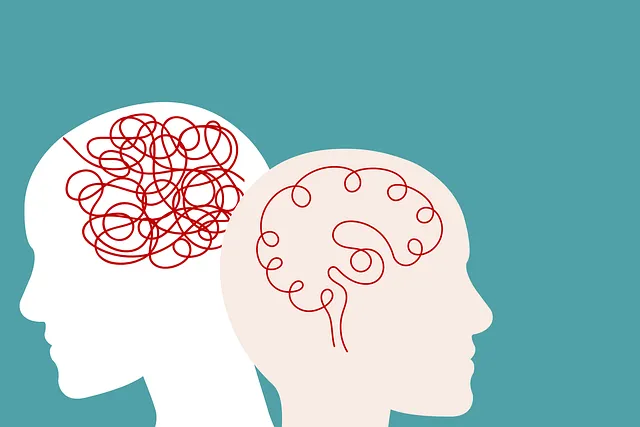Colorado Springs Kaiser Permanente's commitment to cultural competency in mental health services sets a benchmark for equitable care. Through comprehensive training, they enhance cross-cultural communication, foster empathy, and promote self-care, creating an inclusive environment encouraging open discussions about mental wellness. This approach has transformed the community into a hub for collective well-being, improving patient outcomes, satisfaction, and access to tailored mental health services, as measured through continuous evaluation and follow-up surveys.
In today’s diverse healthcare landscape, cultural competency among providers is no longer a preference but an essential requirement. This article explores this critical aspect of modern medical practice, focusing on Colorado Springs Kaiser Permanente’s innovative approach to mental health service delivery as a model for others to follow. We’ll delve into effective training strategies, the importance of cross-cultural communication skills, and methods for measuring the significant impact of cultural competency programs, particularly in mental health services.
- Understanding Cultural Competency in Healthcare: A Necessity in Modern Practice
- Colorado Springs Kaiser Permanente: A Model for Mental Health Service Delivery
- Training Strategies: Equipping Providers with Cross-Cultural Communication Skills
- Measuring Success: Evaluating the Impact of Cultural Competency Programs
Understanding Cultural Competency in Healthcare: A Necessity in Modern Practice

In today’s diverse healthcare landscape, cultural competency is no longer a nice-to-have but an absolute necessity. This concept, central to effective patient care, refers to the ability of healthcare providers to understand, appreciate, and interact respectfully with patients from different cultural backgrounds, beliefs, and values. Given the demographic shifts in communities across the nation, including Colorado Springs where Kaiser Permanente provides comprehensive mental health services, ensuring cultural competency is crucial for promoting equitable access to quality care.
When incorporated into practice, emotional well-being promotion techniques that respect cultural differences can foster a sense of safety among patients, encouraging them to seek help for their mental health concerns. Moreover, empathy building strategies that bridge the gap between providers and diverse patient populations can lead to improved communication, better clinical outcomes, and enhanced satisfaction. For instance, at Kaiser Permanente in Colorado Springs, training programs focused on cultural competency have been instrumental in helping staff develop inner strength development techniques tailored to meet the unique needs of each patient’s cultural context, ultimately enriching the overall healthcare experience.
Colorado Springs Kaiser Permanente: A Model for Mental Health Service Delivery

Colorado Springs Kaiser Permanente stands as a shining example of how cultural competency training can transform mental health service delivery. By prioritizing inclusive care and understanding the diverse needs of their community, they’ve created a supportive environment that encourages open conversations about mental wellness. This commitment is evident in their range of services, from specialized therapy programs to workshops focused on stress management and mental illness stigma reduction efforts.
The organization’s approach emphasizes compassion cultivation practices, fostering a culture where every individual feels heard, respected, and empowered to seek help. Through these innovative strategies, Colorado Springs Kaiser Permanente has not only improved access to mental health care but also fostered a community that prioritizes collective well-being. Their success underscores the profound impact of cultural competency training in shaping inclusive healthcare systems.
Training Strategies: Equipping Providers with Cross-Cultural Communication Skills

Effective cultural competency training for healthcare providers involves equipping them with essential cross-cultural communication skills. At Colorado Springs Kaiser Permanente, mental health services benefit immensely from this approach, fostering better patient-provider relationships and improved care outcomes. Training sessions should focus on enhancing empathy building strategies, encouraging active listening, and teaching self-care practices to mitigate burnout, especially among professionals working in diverse settings.
By incorporating role-playing scenarios and cultural case studies, providers can develop a deeper understanding of different cultural perspectives. This hands-on approach allows them to navigate complex conversations with sensitivity and respect. Moreover, training should emphasize the importance of self-awareness, enabling healthcare workers to recognize their own biases and adjust their interactions accordingly. Such initiatives ultimately contribute to creating an inclusive environment where all patients receive tailored mental health services.
Measuring Success: Evaluating the Impact of Cultural Competency Programs

Measuring success is a vital component of any cultural competency program, particularly in healthcare settings like Colorado Springs Kaiser Permanente’s mental health services. Evaluating the impact allows organizations to understand if their initiatives are effectively fostering inclusive environments and improving patient outcomes. One way to assess this is through pre-post assessments, comparing participant attitudes and knowledge before and after training. These evaluations can gauge changes in cultural awareness, bias reduction, and empathy towards diverse populations.
Additionally, long-term follow-up surveys can track whether the learning translates into clinical practice, such as improvements in patient interactions and increased referral rates for mental health services, including anxiety relief programs. The Risk Assessment for Mental Health Professionals and development of Mental Wellness Coaching Programs can significantly contribute to these evaluations, ensuring continuous improvement and positive changes in healthcare delivery, especially for communities with diverse cultural backgrounds.
Healthcare provider cultural competency training is no longer a luxury, but an indispensable tool for delivering effective care. As evidenced by Colorado Springs Kaiser Permanente’s successful model of mental health service delivery, culturally competent practices significantly enhance patient outcomes and satisfaction. Through comprehensive training in cross-cultural communication, healthcare providers can bridge gaps in understanding and build stronger connections with diverse patient populations. Evaluating the impact of these programs is crucial for continuous improvement, ensuring that every patient receives care tailored to their unique cultural needs. By investing in cultural competency, healthcare organizations like Kaiser Permanente are revolutionizing service delivery and fostering more inclusive and accessible environments.





